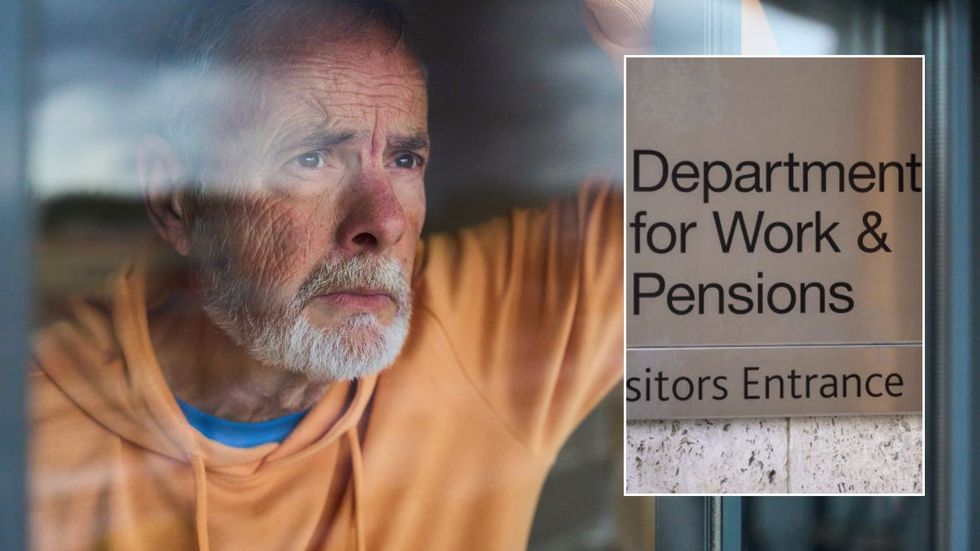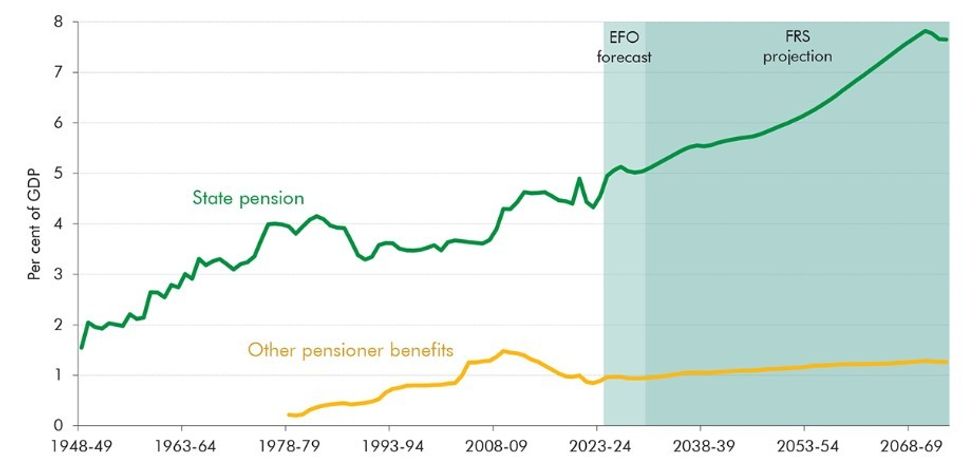State pension age could increase to pay for triple lock as review launched

A recent report from the OBR broke down the cost of the state pension triple lock on the taxpayer
Don't Miss
Most Read
The state pension age could rise again due to the rising cost of the triple lock on the taxpayer.
Ministers are initiating a statutory assessment of retirement ages that must deliver its findings by March 2029, potentially altering when future generations can claim their state pension.
This evaluation will examine two key areas: the considerations that should influence pension age decisions and the share of adult years spent in retirement.
Current plans already schedule the qualifying age to climb from 66 to 67 during 2026-2028, with a further rise to 68 planned for 2044-2046.
Later today, the Labour Government will unveil its new Pensions Commission, which will examine the state pension.
The assessment forms part of broader pension reforms being unveiled by Work and Pensions Secretary Liz Kendall, as the Government grapples with mounting demographic pressures on public spending.
The announcement coincides with stark warnings from the Office for Budget Responsibility (OBR) about Britain's fiscal trajectory, which projects debt could surge from 94 per cent of GDP to 270 per cent by the early 2070s.
It is understood that the current Government is not preparing to make any decisions on further hikes to the state pension, or the timetable, before the next General Election.

The state pension age could be raised to pay for the tripe lock
|GETTY
Labour ministers want to float any changes to the retirement age threshold as part of a wider pensions system review, The i Paper reports.
While the Pensions Commission will examine changes to auto-enrolment and workplace schemes, the state pension and its role in retirement will also be under review.
Catherine Foot, the director of the Standard Life Centre for the Future of Retirement, commented on the launch of the new Pensions Commission and how it should examine the benefit.
Do you have a money story you’d like to share? Get in touch by emailing money@gbnews.uk.
 How much will the state pension triple lock cost the British taxpayer? | OBR
How much will the state pension triple lock cost the British taxpayer? | OBR She said: "The state pension plays a fundamental role in people’s retirements, so it makes sense that its role is considered as part of the broader question of saving adequacy. Any change will need to be very carefully considered, especially as state pension age is due to start rising to 67 next year already.
"We believe that any proposed change must satisfy the principles of fairness, adequacy, and long-term sustainability."
Caroline Abrahams, the charity director at Age UK, added: "There’s no getting away from the fact that the state pension provides the bulk of retirement income for most pensioners, with 1.1million (13 per cent) receiving all their income from the state.
"It’s therefore hugely important to consider the future of the state pension alongside the role of private savings, as only once this is clear will it be possible to say with any accuracy how much people need to put aside to attain a decent standard of living once, they retire."
Recent research from the University of Bath found that older Britons are delaying retirement due to the increasing state pension age with younger workers at risk of underprepared when it comes to saving money.
The study, published in the Journal of Pension Economics and Finance, is based on individual data from the United Kingdom Household Longitudinal Study and examines the effects of the 2011 and 2014 Pension Acts.
LATEST DEVELOPMENTS:

DWP minister Liz Kendall has launched a new Pensions Commission
| PAThese reforms sped up the move to equalise the State Pension age for men and women, raising it to 66 or 67 depending on date of birth. Based on the findings, a one-year rise in the sate pension age slashes the likelihood of retirement by 8.2 percentage points for men and 6.4 percentage points for women.
British homeowners who report having an occupational pension are significantly more likely to retire once they reach retirement age compared to renters without an occupational pension.
Baby boomers, who are closer to the state pension age, are delaying retirement, while Gen X - those born in the 1960s and early 1970s - are not adjusting their expected retirement age in line with policy.
Instead, many still intend to retire early, relying on workplace pensions or part-time work in retirement to bridge any income shortfall - assumptions that University of Bath researchers warn may prove overly optimistic.
More From GB News











